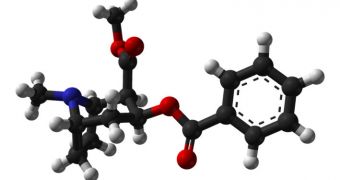A series of recent animal studies has demonstrated that using memory-boosting drugs and behavioral therapy on former drug users may help suppress the return of cocaine-associated 'cues.' This means that patients in rehab clinics could find it easier to avoid relapsing into their old ways as soon as they get out. In a paper accompanying the research, experts reveal that they obtained excellent results using the memory-boosting medication, and that they will soon push for approval to start human trials.
The substance the report highlights is called D-cycloserine, and this is not the first time it is mentioned for therapy. Generally, healthcare experts use it to treat fear and anxiety disorders. In the study, which is detailed in the August 4 issue of the esteemed Journal of Neuroscience, scientists from the Yale University argue that the medication also has outstanding benefits for drug addicts. Its effects are significantly augmented by the addition of behavioral therapy, the science group adds.
One of the main challenges drug users meet when trying to quit the habit is not necessarily the deprivation, but the temptation they feel to fall back on their old ways when they get out of rehab. As with every vice, using drugs comes with associated cues, as in people, places, or events that trigger the urge to use illicit substances. But rats that were given D-cycloserine proved to be a lot more resilient to the effect addiction cues had. Yale experts explain that former “addicts” which did not receive the drug exhibited a significantly higher relapse rate.
The research was conducted on 168 addicted rats, which were placed in cages outfitted with a mechanism that allowed them to self-administer cocaine. Expert Mary Torregrossa, PhD and her team then applied a type of addiction-breaking treatment known as extinction therapy, which was meant to make the rats give up taking cocaine. Some of the rats also received the memory-enhancing drug. “Extinction therapy usually only works where the therapy takes place, like a treatment center. Using drugs like D-cycloserine to make extinction work more broadly is a big advancement in the treatment of addiction,” Torregrossa explains.

 14 DAY TRIAL //
14 DAY TRIAL //